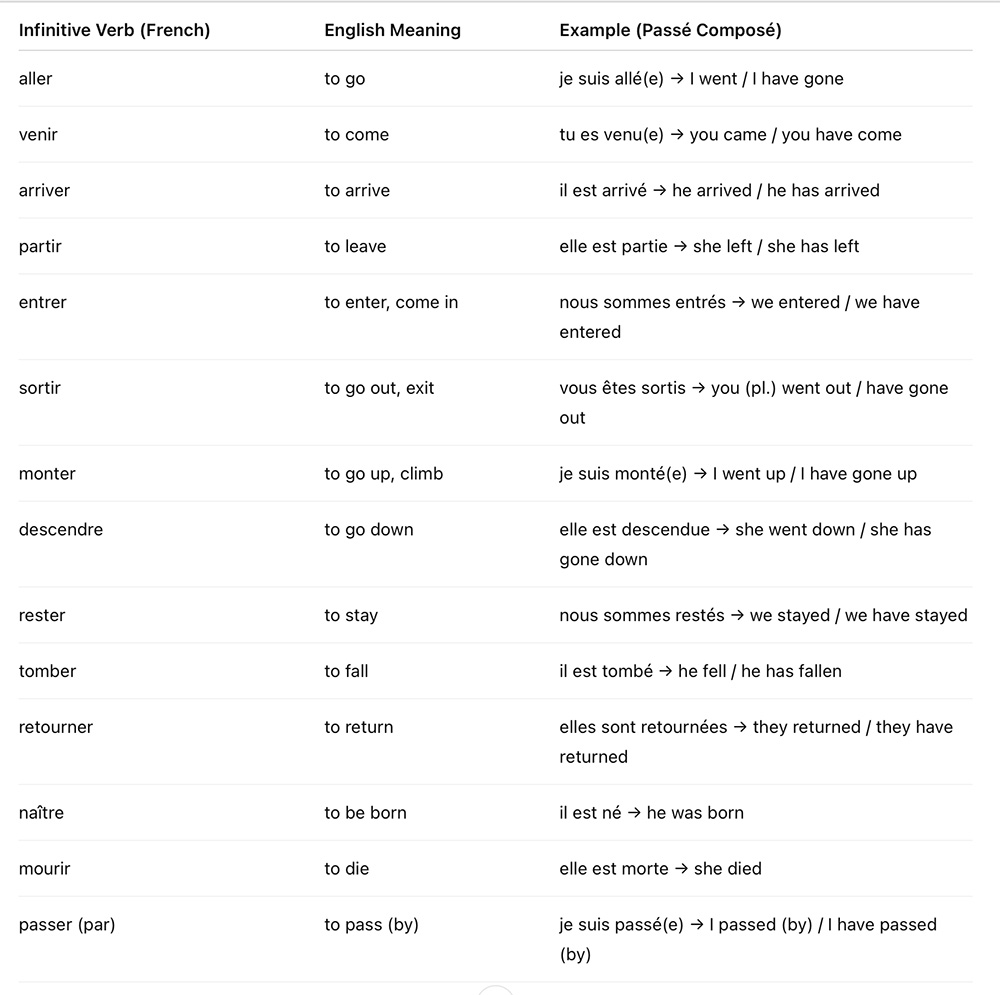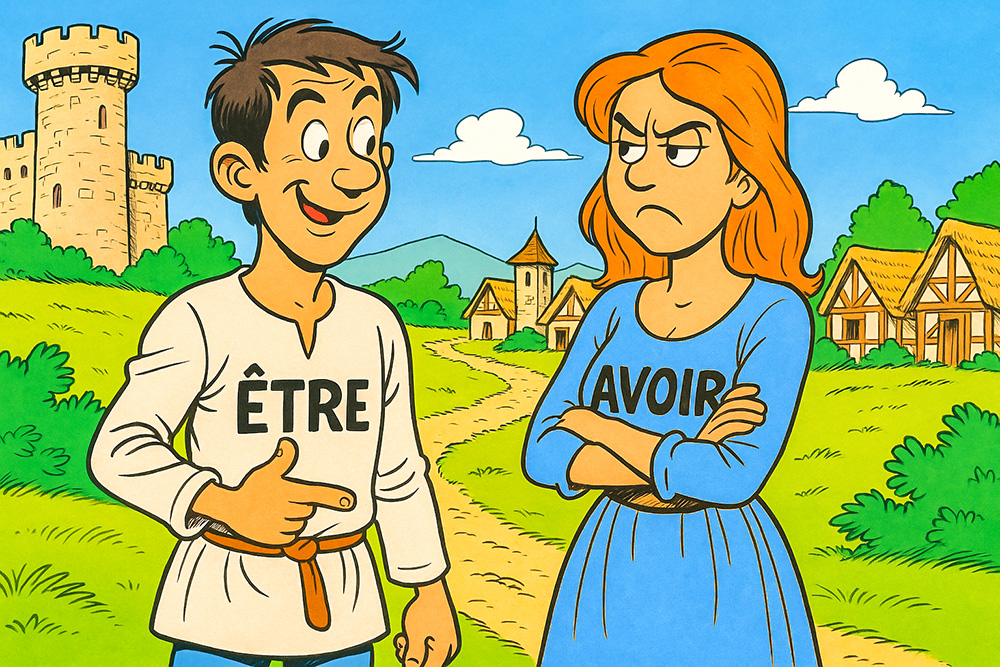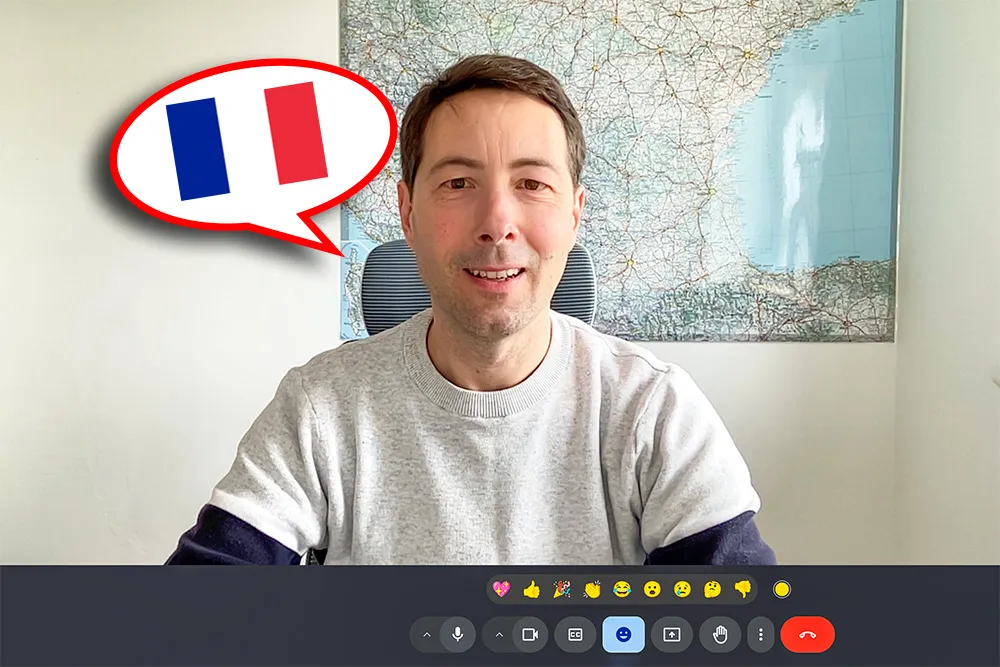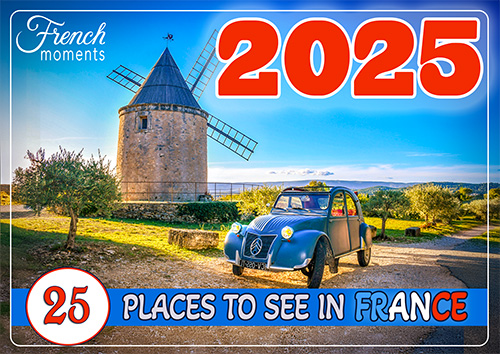Picture this: you’re sitting at a little café in Lyon, chatting to the waiter about your day.
You want to say: I arrived this morning, we went to the cathedral, she stayed at the hotel.
Easy, right? You just translate word for word.
In English, you could say:
I arrived (preterite/simple past)
I have arrived (present perfect)
Either works, depending on the context.
BUT:
In French, the equivalent of these two tenses is called le passé composé —
and here’s the surprise: not all verbs use avoir (have) as their helper verb (auxiliaire).
Some verbs, quite stubbornly, use être (be).
And you need to know which ones.
🚶 The Magic List: Which Verbs Use Être?
The good news? It’s not random.
The bad news? You do need to memorise a small group of verbs.
(But it’s a fixed group of 14 verbs — they never change.)
Here’s a traveller-friendly cheat sheet:

👉 Note: Most of these verbs describe movement or change of state — you’re going, arriving, leaving, coming back, being born, dying, etc.
👨👩👧👦 What About Reflexive Verbs?
Another important tip for travellers:
Any time you talk about yourself doing something to yourself — like getting dressed, getting up, hurting yourself — you’re using a reflexive verb (se lever, s’habiller, se blesser).
These verbs also use être in the passé composé.
Examples:
je me suis levé(e) → I got up
elle s’est habillée → she got dressed
nous nous sommes blessés → we injured ourselves
🏕️ Why Does This Matter for Travellers?
Imagine small-talk moments on your trip:
We arrived yesterday → nous sommes arrivés hier
We went to the Mont-Saint-Michel → nous sommes allés au Mont-Saint-Michel
She fell on the hiking trail → elle est tombée sur le sentier de randonnée
Using the right auxiliary verb will make your French so much clearer —
and honestly, it’ll impress people. You’ll sound like you know your way around the language.
🗝️ Bonus Travel Tip: Agreement Rules
Here’s something English doesn’t have:
When using être, the past participle agrees with the subject in gender and number.
Example:
je suis allé (if you’re a man), je suis allée (if you’re a woman)
ils sont partis (they left, masculine or mixed group), elles sont parties (they left, all-female group)
So yes, you need to add that little -e or -s sometimes —
but don’t panic. Even if you forget, French people will understand you.
☕ Final Words Before You Jet Off
French grammar can feel like a puzzle, but it’s an enjoyable one.
Next time you’re ordering coffee or telling someone about your day, try slipping in one or two passé composé phrases with être.
You’ll sound more natural, you’ll build your confidence, and you might just get a smile (or a compliment!) from the locals.
Bon voyage et bon courage ! 🌍✈️🇫🇷



